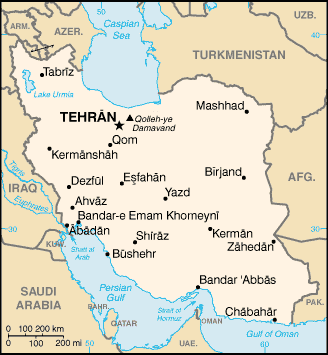
Every day, a little bit more of the preliminary manuscript:
But this understandable desire to get the attention of the West is frequently joined with an unwillingness on the part of Near Easterners to take responsibility for the flaws of their own native area. The fact of Western dominance is exaggerated to the point of hallucination. It overwhelms them, much as the absolute sovereignty of God has swallowed up human will in Islamic theology. Many Arabs and other Muslims that I have known seem genuinely to believe that all of the problems in the region are the doing of Western imperialists. (I recall an outbreak of anthrax in southern Iran, some years ago, that the Iranian government blamed upon CIA parachutists dropping in and injecting the cattle.) There is often no sense that anybody in the region has the ability to do anything about the region’s problems, which are seen as depending wholly upon the superpowers and especially upon the United States. And this, of course, is a formula for stagnation. The hard truth is that the fate of a people is generally in its own hands. Character, as the saying goes, generally is destiny. To deny this basic truth means that nobody will lift a finger to do anything, since to do so would be futile. But the first step that must be taken toward regional recovery is the awakening of a sense that the fate of the region is in the hands of the people of that region, very much as the first step in recovery from alcoholism is the recognition that one is, in fact, an alcoholic and that the problem is one’s own.
I have tried elsewhere to argue against this view that all the problems of the region are the result of superpower meddling, by pointing out that the area must have been flawed to have invited outside intervention in the first place. India, of course, is a case where this is absolutely clear: As I have pointed out, it was only India’s internal weaknesses that allowed the British to move in and take over the subcontinent.
A contrary example is Switzerland during the Second World War. The Swiss were surrounded—by Nazi Germany on the north, occupied Austria on the east, Vichy France on the west, and fascist Italy in the south. The Nazis wanted to seize Switzerland, a Germanic country, and add it to the Third Reich. But they did not. Why? Largely because Switzerland, for all its variety and its ethnic and linguistic divisions, was united. And that unity made the price just too high—higher, anyway, than Hitler and his associates were willing to pay at the time. It is this kind of unity that the Arabs and the Muslims generally lacked during the time of European colonialism and the period of the Crusades, and that they still lack today. (The first Gulf War demonstrated this with depressing clarity)












